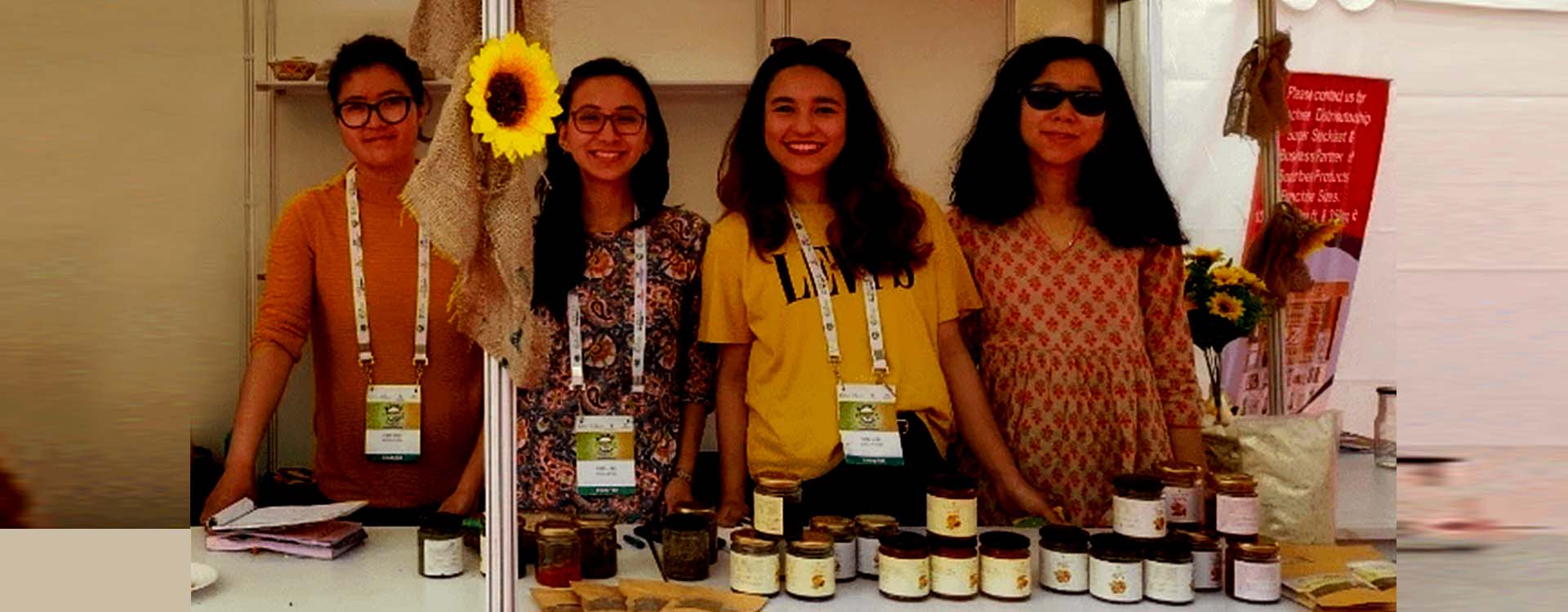Kangla-Nyishar, a Leh-Based Women led organic farming startup set up in 2019 is the perfect example of ‘Vocal for Local’. It is a drive to advance the variety and uniqueness of authentic Ladakhi cuisine by working with conventional plans. Their endeavor is centered on praising the local produce that has sustained as well as flourished in the harsh challenging climatic conditions of Ladakh.
Kangla-Nyishar: The Journey of Endangered Food Culture
The startup makes artisanal food with locally sourced natural produce profiting small cultivators, producers and the local economy. The Womenpreneurs who founded this startup, Rigzin Angmo, Padma Angmo, Rigzin Yangdol and Padma Angmo, came up with this idea as a part of their Naropa Fellowship Programme assignment on setting up a business venture.
While exploring Ladakh, the founders came across various endangered food cultures and learned about ancient recipes. With deep and thorough research on some of these plants and food names, they were amused to know that some of these plants were considered as premium products outside India.
Their major product line includes three varieties of Pesto (walnut, apricot and sun-dried tomato) and Buckwheat tea. All the products are a brainchild of thorough research and are inspired by their ancestors. These traditional Ladakhi products are preservatives free. The raw materials are sourced directly from the farmers in Takmachik which is a certified eco-model village where farming is completely organic.
‘‘
Kangla-Nyishar, a drive to advance the variety and uniqueness of authentic Ladakhi cuisine by working with conventional plans.
Takeaways from Kangla-Nyishar Startup
The startup does not cater to a very large chunk of the population. They don’t export their products and largely cater to the Leh Market, which makes limited demand for the raw materials. Their products are licensed by the Food Safety and Standard Authority of India (FSSAI). The startup inspires the need of protecting one’s heritage and culture.
The major takeaway of this startup is that they are leveraging the region’s natural resources, familial and community networks to create something new that embodies their cultural heritage with a tint of the outside world.
Although the startup is at its nascent stage, they do plan to take it further to various e-commerce websites with new varieties of tea and other products.
The Future of Organic Farming
Organic farming has seen a drastic overall development over the years. According to WHO, the global organic food market is $37 billion. When it comes to safe and environment-friendly practices, organic farming is the best practice.
It also helps in saving the indigenous cuisines and promotes a sustainable way of food consumption. It can be very well seen from this Leh-based startup, how organic farming is building a spirit of entrepreneurship in the remote areas as well.
Millennial are more inclined towards their ancestral history and are applying their foreign studies knowledge in uplifting their society and bringing the world closer to these premium, endangered and enriching products.




